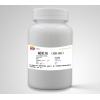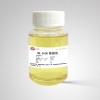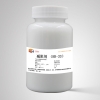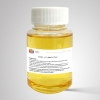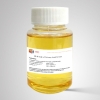Inverse emulsification of demulsification mechanism
Demulsifier manufacturers share with you the mechanism of demulsification. Due to the complexity of the composition of crude oil, oil layer water and natural emulsifiers contained in it, it is extremely difficult to study the physical and chemical processes that occur at the oil-water interface, so the demulsification process of chemical demulsifiers The mechanism of demulsification and demulsification is still under study, but demulsifiers and emulsifiers are both surface-active substances, and their effects are completely opposite. The following will share with you the inverse emulsification effect of the demulsification mechanism of various demulsifiers:
Crude oil emulsions are formed under the action of hydrophobic emulsifiers in crude oil, commonly known as W/O emulsions, such as naphthenic acid and asphaltenes. The use of a hydrophilic demulsifier can convert the emulsion into an O/W type emulsion, and the oil and water are separated by the conversion of the emulsification process and the instability of the O/W type emulsion. When the demulsifier promotes the water-in-oil phase inversion to form an oil-in-water emulsion, it is easy for the water to collide outside and gather into large water droplets to settle out.
Crude oil emulsions are formed under the action of hydrophobic emulsifiers in crude oil, commonly known as W/O emulsions, such as naphthenic acid and asphaltenes. The use of a hydrophilic demulsifier can convert the emulsion into an O/W type emulsion, and the oil and water are separated by the conversion of the emulsification process and the instability of the O/W type emulsion. When the demulsifier promotes the water-in-oil phase inversion to form an oil-in-water emulsion, it is easy for the water to collide outside and gather into large water droplets to settle out.

